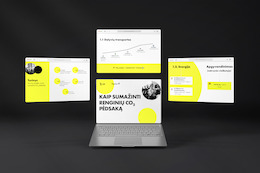Toolbox — For Training and Youth Work
All new tools in your inbox: Be the first to know about new tools for learning with our e-mail notifications.
Manual
How to organise sustainable events
In this guide, you'll learn what causes CO2 emissions (when organising events) & how to reduce that in 5 simple steps.
Aims of the tool
The aim is to make our events more sustainable (in five easy steps)
Description of the tool
In this guide, you'll learn what causes CO2 emissions (when organising events) & how to reduce that in 5 simple steps:
1) Estimate CO2 emissions in advance (e.g., when crafting your event’s budget)
2) Do your best to reduce the actual CO2 emissions
3) Recalculate the actual CO2 emissions post-event (using the calculator)
4) Offset the produced emissions
5) Release the emissions report
Available downloads:
Disclaimer
SALTO cannot be held responsible for the inappropriate use of these training tools. Always adapt training tools to your aims, context, target group and to your own skills! These tools have been used in a variety of formats and situations. Please notify SALTO should you know about the origin of or copyright on this tool.
Tool overview

http://toolbox.salto-youth.net/3067
This tool is for
Youth workers, youth, event organisers
and addresses
Environment
It is recommended for use in:
Youth Exchanges
Materials needed:
None
Duration:
45min
Behind the tool
The tool was created by
Active Youth Association
in the context of
Based on experience in countless youth projects & activities.
The tool has been experimented in
Trainings, seminars, youth exchanges
The tool was published to the Toolbox by
Gediminas Kondrackis (on 14 February 2023)
and last modified
18 November 2021
Comments
No comments have been posted yet.
If you want to comment on this tool, you need to be signed in with your MySALTO account. Sign in now